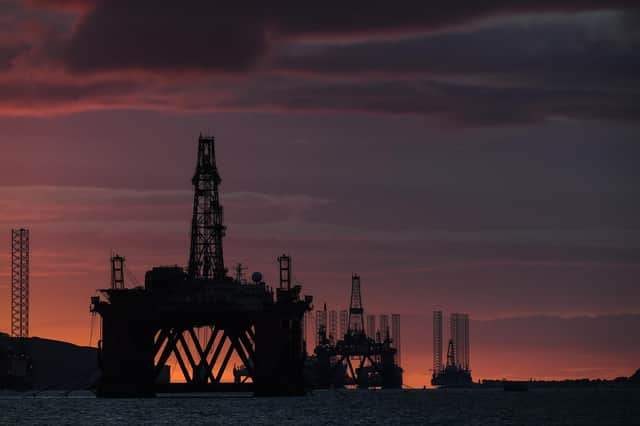Climate change: Since Scotland and UK declared a 'climate emergency' the amount of oil and gas planned to be extracted has increased – Dr Richard Dixon
This article contains affiliate links. We may earn a small commission on items purchased through this article, but that does not affect our editorial judgement.


This built on a research paper from 2015 but the unburnable amounts are larger because this study aims for 1.5C rather than 2C global temperature rise.
They found that 58 per cent if the world’s oil, 59 per cent of the gas and 89 per cent of the coal need to stay where they are. Which means plenty of reserves companies have already said they will extract can never be taken out of the ground.
Advertisement
Hide AdAdvertisement
Hide AdThere is also no room for any fracking. They say global fossil fuel production needs to decline at three per cent a year. A UN report last year put this figure at six per cent a year.
These conclusions echo those of the International Energy Agency, which said in May that climate change means there should be no more new oil and gas developments anywhere in the world if we are to have a hope of meeting the targets in the 2015 Paris Climate Agreement.
There are two other notable features of last week’s report. Firstly, even this level of restriction on fossil fuels only gives us a 50 per cent chance of staying below 1.5C. For some people that’s a 50 per cent chance of staying alive, for some island countries a 50 per cent chance of still existing, for some species a 50 per cent chance of extinction.
It also concludes that even widespread adoption of technologies to take carbon dioxide out of the air or fuels would only free up a few extra per cent of reserves. In other words, there is no technofix that lets the oil industry keep going as usual.
In the UK these arguments are symbolised by the controversy over the proposed Cambo oil field. This week we published a new report looking specifically at the UK picture. ‘Watershed’ finds that the amount of oil and gas the UK is proposing to extract, rather than declining, has increased by 15 per cent since both the Scottish government and the UK Parliament declared climate emergencies in spring 2019.
The planned production of 6.55 billion barrels of oil and gas puts us well beyond anything that could be considered a fair contribution to meeting the Paris Agreement targets. Not only do we have to stop looking for new oil, not only do we need to cancel production in fields like Cambo where work has not started, we also need to limit extraction from the fields that are already in production.
Broadly, there are two possible futures. We take climate change seriously, leave most of the fossil fuels in the ground and adapt to the warming that will still happen. Or we just let the oil industry pretend to go green while they carry on as usual until climate change gets so bad that oil jobs will be the last thing we’re worrying about.
The bottom line is that time has already run out for the UK fossil fuel industry and we need to rapidly phase out production in this decade, giving us time to support communities and workers that currently depend on the fossil fuel industry.
Advertisement
Hide AdAdvertisement
Hide AdDr Richard Dixon is director of Friends of the Earth Scotland
A message from the Editor:
Thank you for reading this article. We're more reliant on your support than ever as the shift in consumer habits brought about by coronavirus impacts our advertisers.
If you haven't already, please consider supporting our trusted, fact-checked journalism by taking out a digital subscription.
Comments
Want to join the conversation? Please or to comment on this article.
